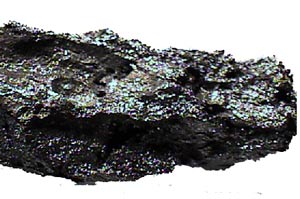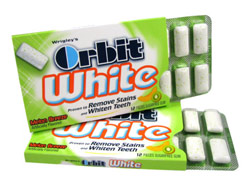|
|
Titanium Allergy It’s not an allergy which many people, including experts, have heard of, and yet for some, titanium – in the form of the colouring titanium dioxide – could be causing sensitivities and other problems. Alex Gazzola reports. |

Named after the Titans of Greek mythology, titanium is an extremely strong metal, highly resistant to corrosion, which is the seventh most abundant metallic element in the earth’s crust. As a literal ‘titan’ of the metal world, it is widely used in engineering, aviation and other industries - but has been put to use in more recent years in reconstructive medicine in the form of prosthetics, hip and joint replacements, as well as dental and other implants, which clearly have introduced the material more directly onto or into the body. It’s also in building materials such as cements, sports equipment such as tennis rackets, and jewellery. In the form of titanium dioxide - chemically expressed as TiO2 - it has an even wider range of applications, many of which bring people into additional close contact with it. It is found in white paints (your skirting board is kept bright by titanium dioxide), white carrier bags and other plastics, bright white papers, some inks, and occasionally as a glaze or film on ceramics, mirrors and gemstones to heighten optical intensity. It is especially common in cosmetic products - such as make-up, sunscreen and toothpastes - occasionally in ‘nano’ form, which are tinier particles in finer form, and which boast additional applications. You can learn more about its use in skincare via our Titanium Sensitivity article on SkinsMatter.com, our sibling site. Titanium dioxide is also found in food, as the food colouring E171 - to add whiteness to confectionary, icing sugar and vegan dairy-replacement foods - and in many pills, supplements and drugs, sometimes merely on the casing. It’s regularly used in products such as nicotine gums too. In recent years, several reports of titanium allergy or sensitivity have come to light, although there is very little research in the medical literature about it. Should you be worried? And could titanium be the underlying cause of sensitivities, reactions or symptoms for which no other culprit can be found? Titanium sensitivity Although metals are not allergens in themselves, their ions can bind to biological protein molecules and convert them into proteins which have greater allergenic potential. This happens with the well-documented nickel allergy, which may affect up to 10% of the population, mainly women. Titanium allergy is less documented or understood, but it has been a subject the Breakspear Medical Group - a private UK clinic, specialising in allergy and environmental illness - have been interested in for some years. It may effect up to 4% of people with titanium implants, and smaller numbers of the wider population. The only current blood test for titanium allergy, a test called the MELISA® test, is available through Breakspear. For those with skin sensitivities, potentially to cosmetics, patch testing is an alternative means of testing, but it may not work well as an alternative in the case of titanium, unfortunately, as skin penetration may not be sufficient. Symptoms of sensitivity can include dermatitis and other skin-focused reactions, but there has been speculation that neurological effects - such as headaches, migraines, depression, muscular pain, insomnia and fatigue - may also be sometimes caused by longer term or heavier exposure to titanium in those who have developed reactivity to it. Titanium dioxide health concerns In March earlier this year, Dunkin Donuts made the news after announcing it would remove titanium dioxide from its products. The move appeared to be triggered by pressure from an advocacy group, who were concerned about the presence of ‘nano’ titanium dioxide in the food grade titanium dioxide they were using. Although there are some naturally occurring ‘nano’ particles in E171, most of the TiO2 is non-nano - it needs to be, or the whitening / brightening effects would be absent. As a highly unreactive ingredient, it is widely considered safe – it would have to be, to be EU approved, as it is. That said, some commentators have pointed out that some theoretical risks we don’t yet know about may exist, and in line with the trend for so-called clean eating, many may choose to avoid the colouring as they might other colourings or additives in their diets. Where is E171 found? 
It is used widely in confectionary and the matter has in the past raised some concern for the health of children. There have been some reports online that suggest it may be used to replace lost or absent whiteness in skimmed milks, cottage cheeses and ultra-white cheeses such as Mozzarella, but the Dairy Council state it is definitely not used in milk (although it may be used in the cartons of skimmed milk), and in the EU the only dairy products it appears to be authorised for use in appear to be ‘flavoured fermented milk products’. According to the Food Additives section of the EC database, it is also permitted for use in fruit and vegetable preparations, processed fish and seafood products, edible ices, ‘starch based snacks’, chewing gum, desserts and flavoured drinks. Those on ‘free from’ diets may find it used in products such as prepared white sauces and condiments, vegan coffee whiteners and vegan / dairy free cheeses such as those by Violife and Daiya. There have been calls to replace it with rice starch, which is also white, and can be used as an alternative. This ingredient as the added advantage of being a widely tolerated ingredient. Dairy free and vegan brands who have confirmed to us that they do not use E171 are Oatly, Bute Island Foods (Sheeze), The Coconut Collaborative and Plamil. Lactofree also do not use it. Peppersmith chewing gum is free from E171. Titanium in Supplements and Medicines Viridian Nutrition supplements do not use titanium dioxide. Viridian Nutrition products are also sold in the US. Titanium in Toothpastes Also of concern to those sensitive to titanium dioxide is its use in most high-street toothpastes - specifically in ‘whitening’ or ‘ultra brightening’ products. UK Toothpastes by Earthpaste, JASON, Green People, Weleda and Kingfisher are free from titanium dioxide. (In the US, links to these toothpastes can be found through these links: Earthpaste, JASON, Green People, Weleda and Kingfisher.) Resources www.melisa.org - The Melisa Test September 2015
|












